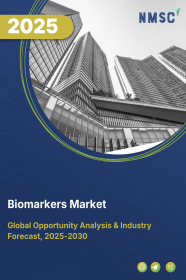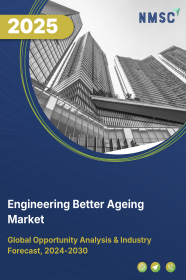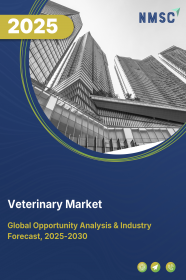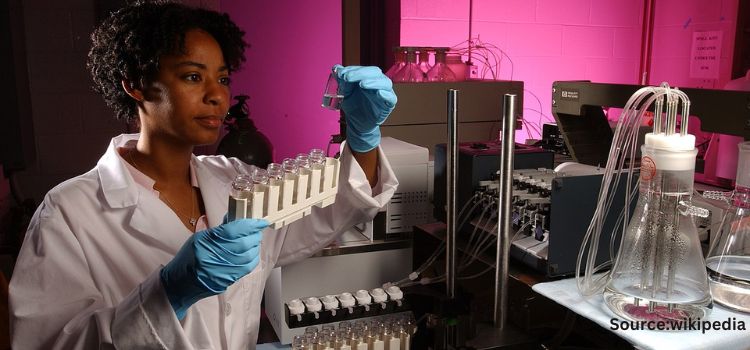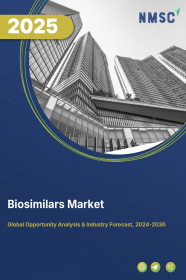
Biosimilars Market by Product Type (Monoclonal Antibodies, Insulins, Erythropoietin (EPO), Granulocyte-Colony Stimulating Factors (G-CSF), Hematopoietic Agents, Follitropin, and Others), by Manufacturing Approach (In-House Manufacturing and Contract Manufacturing), by Application (Oncology, Autoimmune Diseases, Diabetes, Hematology, Nephrology, and Endocrinology), and Others – Global Opportunity Analysis and Industry Forecast, 2024–2030
US Tariff Impact on Biosimilars Market
Trump Tariffs Are Reshaping Global Business
Biosimilars Market Overview
The global Biosimilars Market size was valued at USD 30.98 billion in 2023 and is predicted to reach USD 86.28 billion by 2030, registering a CAGR of 15.8% from 2024 to 2030. Biosimilars, also known as follow-on biologic that are closely identical copies of existing biological drugs designed to have the same safety, efficacy, and quality as the original drug.
These medications consist of large, complex molecules sourced from living organisms and are subjected to stringent testing to confirm their functional and performance equivalence to the original biologic.
Biosimilars are utilized in treating various chronic illnesses, including cancer and autoimmune disorders such as rheumatoid arthritis and Crohn’s disease, as well as diabetes. It offers cost-effective alternative to original biologics, resulting in significant savings for healthcare systems while ensuring comparable therapeutic outcomes.
Unlike traditional generic drugs, biosimilars are more intricate and face stricter regulatory oversight due to their biological nature. By enhancing access to essential treatments, biosimilars are transforming the medical landscape, reducing the costs associated with life-saving therapies, and fostering innovation in the development of biologics.
Market Dynamics and Trends
The rising incidence of chronic diseases, such as cancer, diabetes, and autoimmune disorders, significantly influences the global demand for biosimilars. As per the World Health Organization (WHO) report 2023, Noncommunicable diseases (NCDs), or chronic disease cause 74% of global deaths with cardiovascular diseases lead with 17.9 million deaths annually, followed by cancers (9.3 million), respiratory diseases (4.1 million), and diabetes (2.0 million).
These conditions require long-term, costly biologic treatments that place a substantial financial burden on healthcare systems and patients. As the prevalence of these diseases increases, especially in aging populations and developing regions, there is a growing need for more affordable treatment options.
Biosimilars offer a cost-effective alternative to expensive biologic drugs, providing the same therapeutic outcomes at a lower price. This affordability makes biosimilars an attractive option for healthcare providers and governments aiming to manage rising healthcare costs while ensuring patients have access to essential treatments driving global demand.
Moreover, growing investments in the biopharmaceutical (biopharma) sector significantly impact the growth of biological products by accelerating research, development, and manufacturing capabilities. As more funding is channeled into biopharma, companies are able to advance innovative technologies that improve the efficiency and scalability of biosimilar production.
As per the Evaluate Pharma World Preview report, the biopharmaceutical R&D spending USD 189 billion in 2022 that is projected to reach at USD 213 billion by 2026. This is an increase of 12.7% within the time span of four years. These investments also support clinical trials and regulatory approval processes, allowing for the faster introduction of biosimilars to the market.
Furthermore, increased capital enables biopharma companies to expand their global presence, particularly in emerging markets where demand for cost-effective biologic treatments is rising. This surge in investment not only boosts the availability and diversity of biosimilars but also fosters competition, which helps reduce prices and further drives market growth.
In addition, rising emphasis on product development by rising companies is driving the biosimilar market's growth. These companies are investing in R&D to create innovative and cost-effective biosimilars, making treatments more accessible and affordable.
For example, Enbrel’s two biosimilars, such as Eticovo and Erelzi are approved and expected for release in 2029. Also, Soliris’s Phase 3 trials complete for biosimilar and it is expected to launch by 2025. By improving manufacturing efficiency and expanding into therapeutic areas such as oncology and autoimmune diseases, they are meeting unmet medical needs and enhancing patient access. This focus on innovation and affordability helps companies gain market share, fueling the overall biosimilars market expansion.
However, the biosimilars market faces significant restraints due to high development costs and a complex regulatory environment. Developing biosimilars involves sophisticated manufacturing processes, requiring substantial investment in research, technology, and production infrastructure.
Additionally, navigating the stringent and varied regulatory requirements across different regions adds to the challenge, as companies must meet rigorous standards for approval. These factors not only increase the time and cost involved in bringing biosimilars to the healthcare sector, but also delay product launches, hindering the the overall growth of industry.
On the other hand, the surge in FDA approvals for biosimilars combined with their potential for significant cost savings in the healthcare sector is creating substantial future market opportunities. As more biosimilars receive regulatory clearance, they provide affordable alternatives to high-cost biologics, driving greater competition and expanding treatment options. This trend not only enhances market access but also stimulates investment and innovation, paving the way for continued growth and improvement in the biosimilars industry.
As per the U.S. Food & Drug Administration (FDA), the agency approved 50 biosimilars in a single week of April in 2024. Also, according to the Association for Accessible Medicines (AAM) report 2023, the annual savings from generic and biosimilar medicines was valued at USD 265 billion in 2017 that reached at USD 408 billion in 2022, an increase of 54% within the time span of five years.
Market Segmentation and Scope of Study
The biosimilars industry is segmented on the basis of product type, manufacturing approach, application, distribution channel, and region. On the basis of product type, the market is divided into monoclonal antibodies, insulins, erythropoietin (EPO), granulocyte-colony, stimulating factors (G-CSF), hematopoietic agents, follitropin, and others. On the basis of manufacturing approach, the market is classified into in-house manufacturing and contract manufacturing. On the basis of application, the market is segmented into oncology, autoimmune diseases, diabetes, hematology, nephrology,and endocrinology. On the basis of distribution channel, the market is classified into hospital pharmacies, retail pharmacies, and online pharmacies. Regional breakdown and analysis of each of the aforesaid segments includes regions comprising of North America, Europe, Asia-Pacific, and RoW.
Geographical Analysis
North America dominates the global biosimilars market share and is expected to continue its dominance during the forecast period. The rising incidence of cancer in the region is driving demand for cost-effective biosimilars.
The American Cancer Society's 2024 report estimates approximately 611,720 cancer-related deaths in the U.S. this year, averaging about 1,680 deaths per day. As cancer remains the second leading cause of death in the country, surpassed only by heart disease, the need for affordable biosimilar treatments is becoming increasingly critical.
Moreover, the rising R&D investment in the countries such as the U.S., and Canada are accelerating the biosimilar market demand by fostering innovation and enhancing product availability. As per the World Bank, the U.S. R&D expenditure from its GDP increased 19.3% from 2017-2021, reflecting a strong commitment to advancing scientific research and supporting the sector.
On the other hand, Asia-Pacific is expected to witness substantial growth during the forecast period, fueled by the rapidly rising cases of diabetes is driving demand for effective treatment options. This trend is likely to boost the biosimilars market in the region significantly.
As per the International Diabetes Federation (IDF) report, the people with diabetes (20-79 years) in Western Pacific is recorded to be at 205.64 million in 2021 that is projected to reach at 238.3 million by 2030. This is an increase of 15.9% within the time span of nine years.
Additionally, the growing emphasis by the key companies in the Asia-Pacific region in the development of biosimilar drugs accelerates the demand for market. For instance, in July 2024, Humira and Stelara partnered to launched biosimilars in South Korea, offering more affordable treatments for rheumatoid arthritis, psoriasis, and inflammatory bowel disease. These new options are expected to improve patient access and reduce healthcare costs, reflecting a trend toward greater biosimilar availability in the region.
Competitive Landscape
The promising players operating in the biosimilars industry include Sandoz Group, Pfizer Inc., Celltrion, Samsung Bioepis Co., Ltd, Amgen Inc., Biocon, Dr. Reddy’s Laboratories Ltd, Mylan N.V., Teva Pharmaceutical Industries Ltd, and Novartis AG, among others. These companies are engaged in partnership, product launches and business expansion across various regions to maintain their dominance in the sector.
In August 2024, Amgen is opening a new facility in Hyderabad, India, to enhance research and development efforts, supporting its global expansion and advancing biosimilar innovation. Also, in July 2024, Sandoz launched Pyzchivar, a biosimilar based on ustekinumab, across Europe to treat chronic inflammatory conditions like psoriasis, psoriatic arthritis, and Crohn's disease. This new, cost-effective option maintains the efficacy and safety of the reference product, enhancing patient access and supporting the growth of the European biosimilars market.
Moreover, in May 2024, Celltrion USA launched its adalimumab biosimilar, AATY, at a low Wholesale Acquisition Cost, providing an affordable alternative to Humira for conditions like rheumatoid arthritis and inflammatory bowel disease. This pricing aims to enhance patient access and reduce healthcare costs.
Additionally, in May 2024, Biocon Biologics received U.S. FDA approval for its biosimilar aflibercept, branded as YESAFILI, marking its entry into the U.S. ophthalmology market. This approval will provide a cost-effective treatment option for patients with retinal disorders, expanding Biocon's biosimilar portfolio in the U.S.
Key Benefits
-
The report provides quantitative analysis and estimations of the biosimilars market from 2024 to 2030, that assists in identifying the prevailing market opportunities.
-
The study comprises a deep-dive analysis of the current and future biosimilars market trends to depict prevalent investment pockets in the industry.
-
Information related to key drivers, restraints, and opportunities and their impact on the biosimilars market is provided in the report.
-
Competitive analysis of the players, along with their market share is provided in the report.
-
SWOT analysis and Porters Five Forces model is elaborated in the study.
-
Value chain analysis in the market study provides a clear picture of roles of stakeholders.
Biosimilars Market Key Segments
By Product Type
-
Monoclonal Antibodies
-
Insulins
-
Erythropoietin (EPO)
-
Granulocyte-Colony Stimulating Factors (G-CSF)
-
Hematopoietic Agents
-
Follitropin
-
Others
By Manufacturing Approach
-
In-House Manufacturing
-
Contract Manufacturing
By Application
-
Oncology
-
Autoimmune Diseases
-
Diabetes
-
Hematology
-
Nephrology
-
Endocrinology
By Distribution Channel
-
Hospital Pharmacies
-
Retail Pharmacies
-
Online Pharmacies
By Region
-
North America
-
The U.S.
-
Canada
-
Mexico
-
-
Europe
-
The UK
-
Germany
-
France
-
Italy
-
Spain
-
Denmark
-
Netherlands
-
Finland
-
Sweden
-
Norway
-
Russia
-
Rest of Europe
-
-
Asia-Pacific
-
China
-
Japan
-
India
-
South Korea
-
Australia
-
Indonesia
-
Singapore
-
Taiwan
-
Thailand
-
Rest of Asia-Pacific
-
-
RoW
-
Latin America
-
Middle East
-
Africa
-
Key Players
-
Sandoz Group
-
Pfizer Inc.
-
Celltrion
-
Samsung Bioepis Co., Ltd
-
Amgen Inc.
-
Biocon
-
Dr. Reddy’s Laboratories Ltd
-
Mylan N.V.
-
Teva Pharmaceutical Industries Ltd
-
Novartis AG
REPORT SCOPE AND SEGMENTATION:
|
Parameters |
Details |
|
Market Size Value in 2023 |
USD 30.98 Billion |
|
Revenue Forecast in 2030 |
USD 86.28 Billion |
|
Value Growth Rate |
CAGR of 15.8% from 2024 to 2030 |
|
Analysis Period |
2023–2030 |
|
Base Year Considered |
2023 |
|
Forecast Period |
2024–2030 |
|
Market Size Estimation |
Billion (USD) |
|
Growth Factors |
|
|
Companies Profiled |
10 |
|
Market Share |
Available for 10 companies |
|
Customization Scope |
Free customization (equivalent up to 80 working hours of analysts) after purchase. Addition or alteration to country, regional, and segment scope. |
|
Pricing and Purchase Options |
Avail customized purchase options to meet your exact research needs. |

















 Speak to Our Analyst
Speak to Our Analyst



